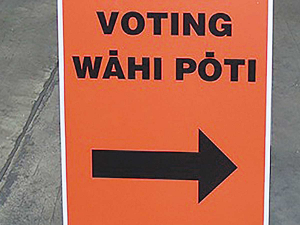Regional councils welcome certainty around RMA
Regional councils are welcoming the certainty for councils in today’s Resource Management Act (RMA) announcement by the Government.
 With local elections just around the corner, Local Government New Zealand is encouraging eligible voters to vote in the election.
With local elections just around the corner, Local Government New Zealand is encouraging eligible voters to vote in the election.
Local Government New Zealand (LGNZ) is seeking to increase voter participation this local election campaign.
Voters can expect to receive their voting papers within the next week.
Currently, approximately 40% of New Zealanders vote in local elections compared to 80% of Kiwis who vote in the general election.
“There is a common misconception that local elections are just for ratepayers. That’s far from the truth,” says LGNZ chief executive, Susan Freeman-Greene.
“The decisions councils make now will have a huge impact on how future generations live, work and thrive in our communities.”
Freeman-Greene says that research suggests the younger you are, the less likely you are to vote in a local election.
“That’s why boosting youth participation plays an important part in lifting our overall numbers.”
She says she is heartened to see young people take action over issues they feel passionate about.
“Local elections are a great opportunity for young voters to capitalise on that momentum by having a say on who best represents them.
“Twice as many people get out to have their say when it comes to who represents them in central government. This year we want everyone to encourage one other person to vote in the local elections because we all have a role to play to ‘up the vote’.”
Local elections are held by postal vote so voters need to ensure their return envelope is posted at least three days before polls close on 8 October, Freeman-Greene says.
LGNZ isn’t alone in the push to encourage voters this campaign, Taranaki Regional Council chief executive Steve Ruru is encouraging residents in the region to vote.
“We really want to see as many people as possible getting involved in local democracy as your councillors will be making some big calls that will directly impact on people’s lives,” Ruru says.
“We know that the turnout for local elections has been low in recent years so it’s vital we get the message out to people that your vote counts.
“Please take the time to find out more about your candidates and what they stand for and get those voting papers in the post as soon as possible.”
Global trade has been thrown into another bout of uncertainty following the overnight ruling by US Supreme Court, striking down President Donald Trump's decision to impose additional tariffs on trading partners.
Controls on the movement of fruit and vegetables in the Auckland suburb of Mt Roskill have been lifted.
Fonterra farmer shareholders and unit holders are in line for another payment in April.
Farmers are being encouraged to take a closer look at the refrigerants running inside their on-farm systems, as international and domestic pressure continues to build on high global warming potential (GWP) 400-series refrigerants.
As expected, Fonterra has lifted its 2025-26 forecast farmgate milk price mid-point to $9.50/kgMS.
Bovonic says a return on investment study has found its automated mastitis detection technology, QuadSense, is delivering financial, labour, and animal-health benefits on New Zealand dairy farms worth an estimated $29,547 per season.

OPINION: Here w go: the election date is set for November 7 and the politicians are out of the gate…
OPINION: ECan data was released a few days ago showing Canterbury farmers have made “giant strides on environmental performance”.